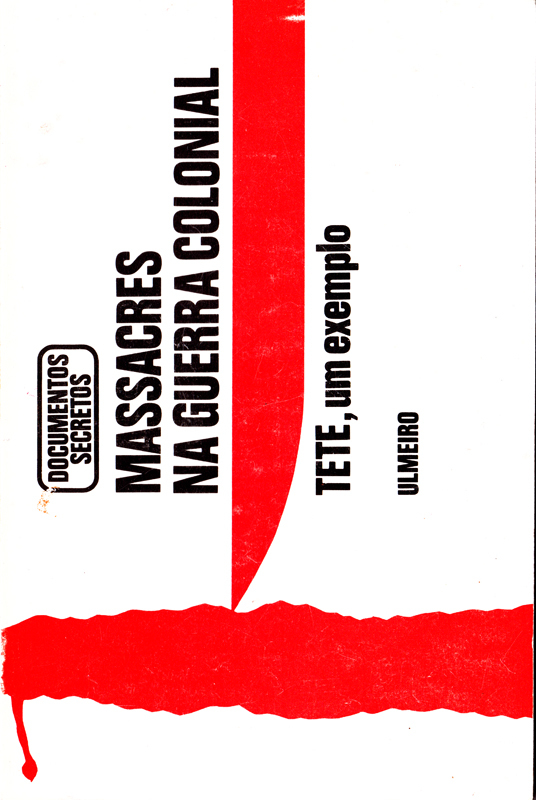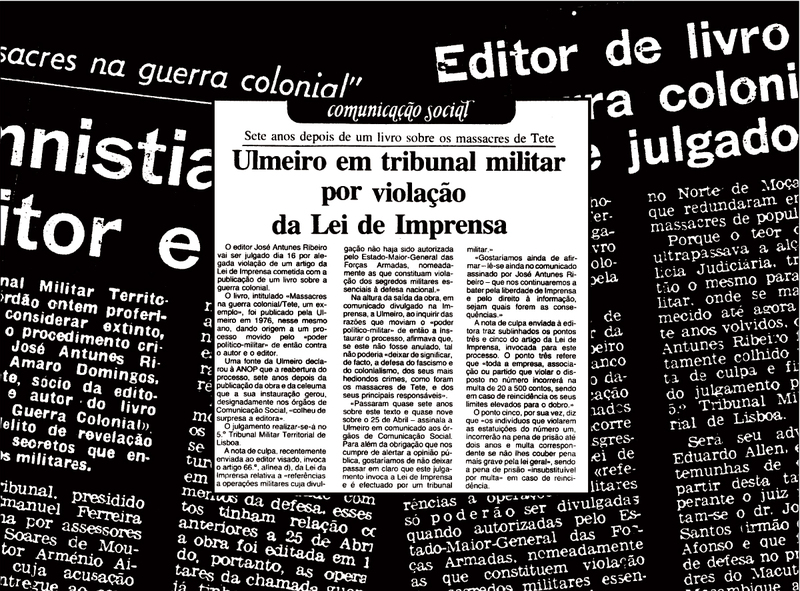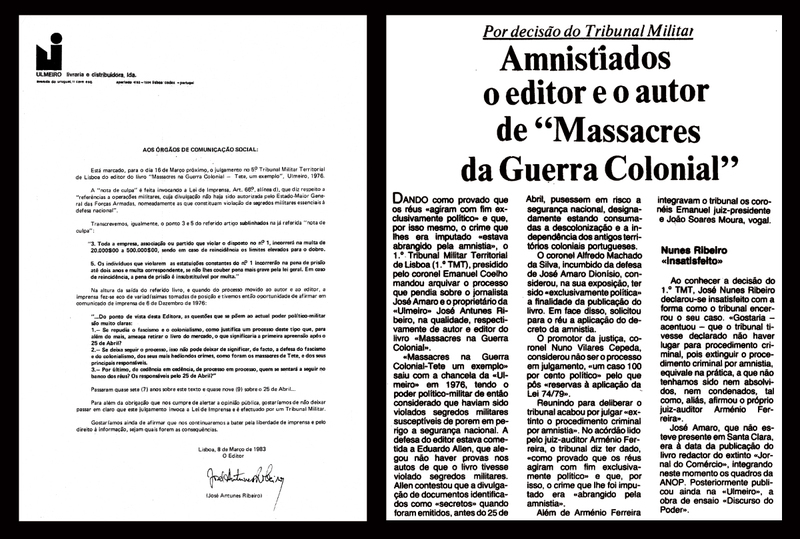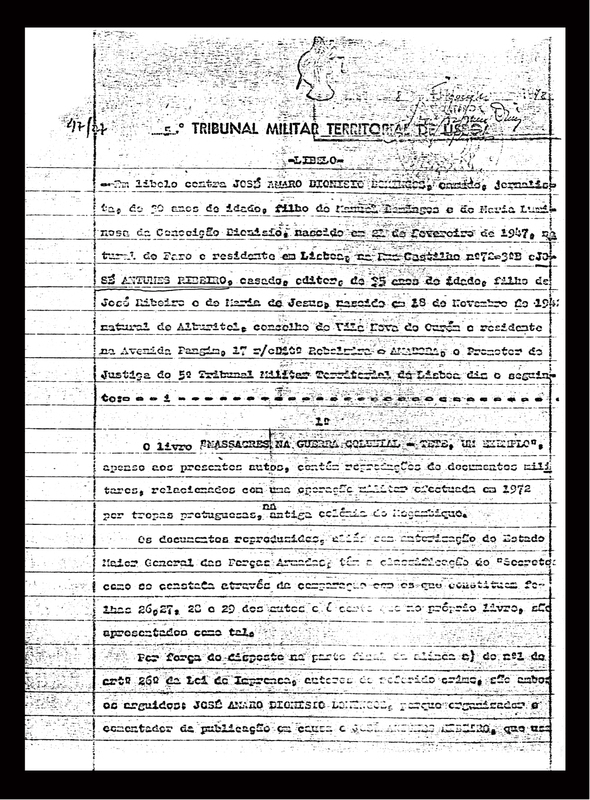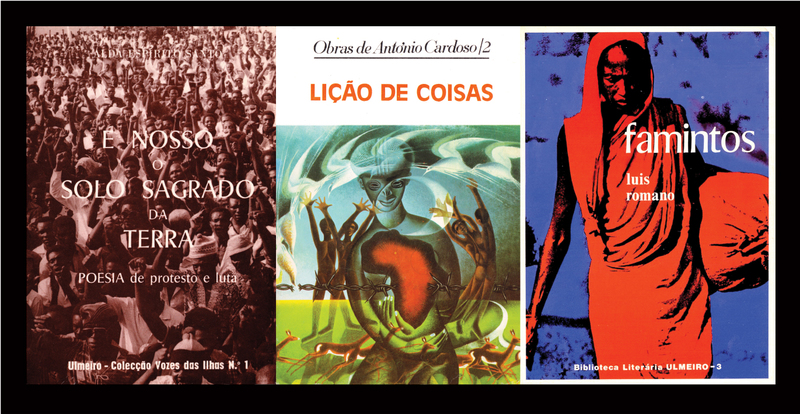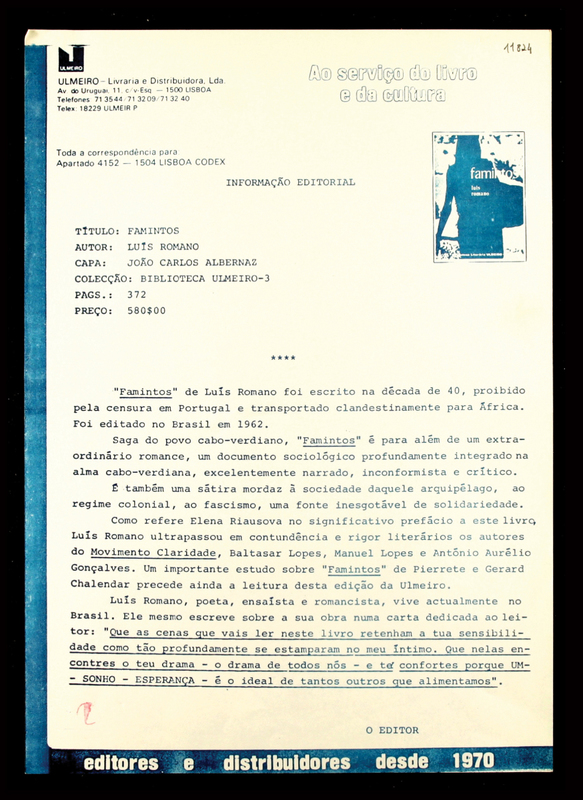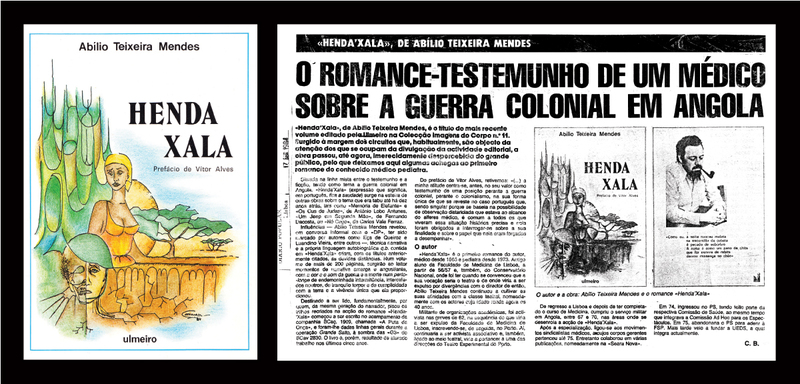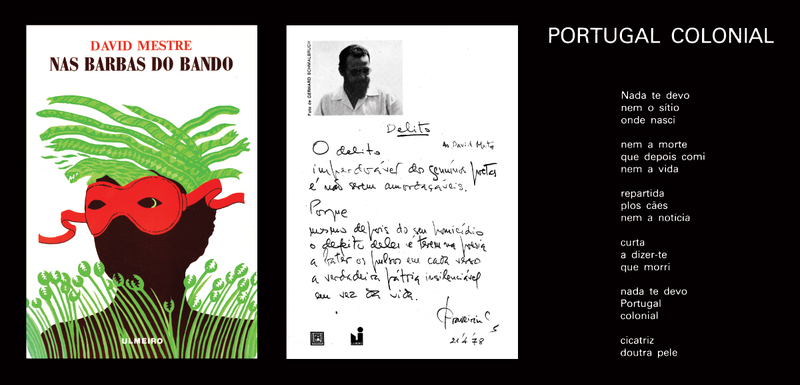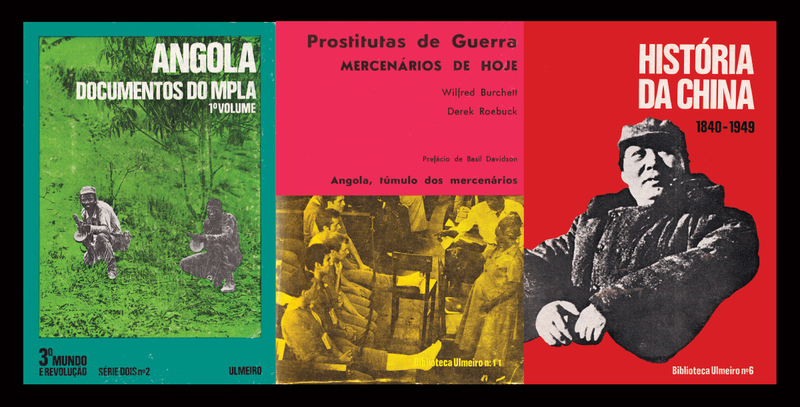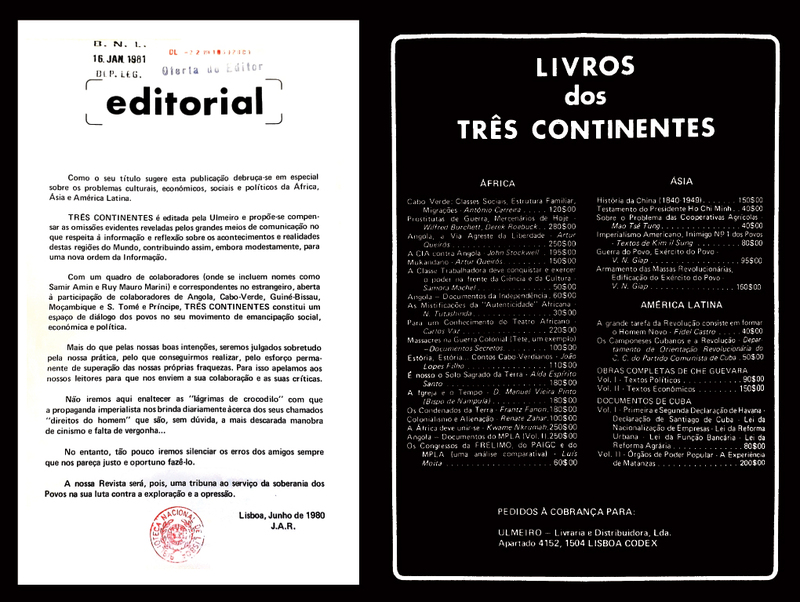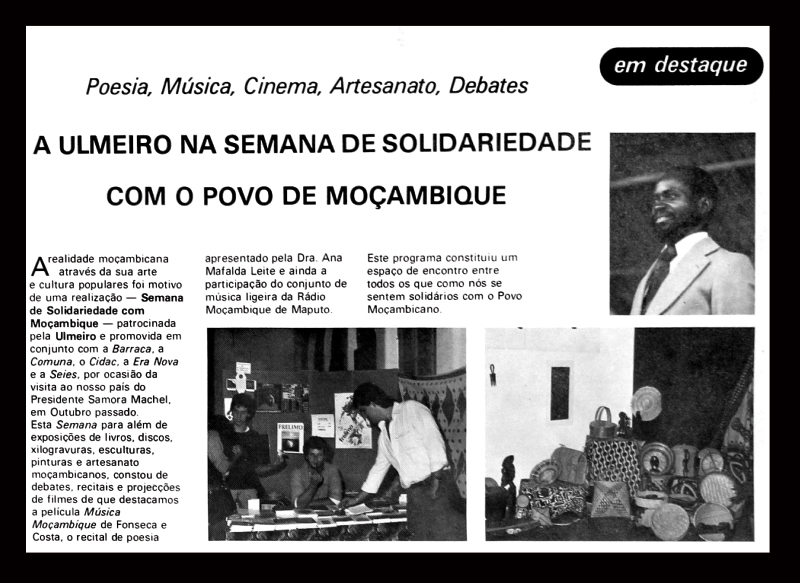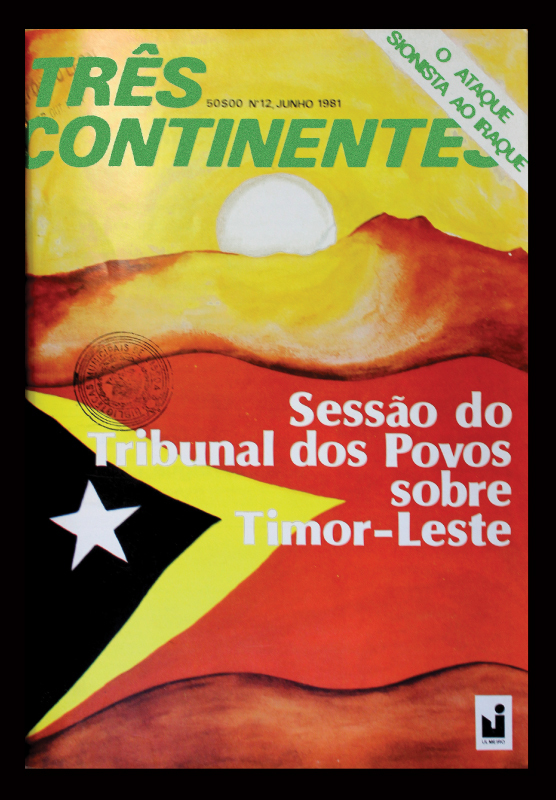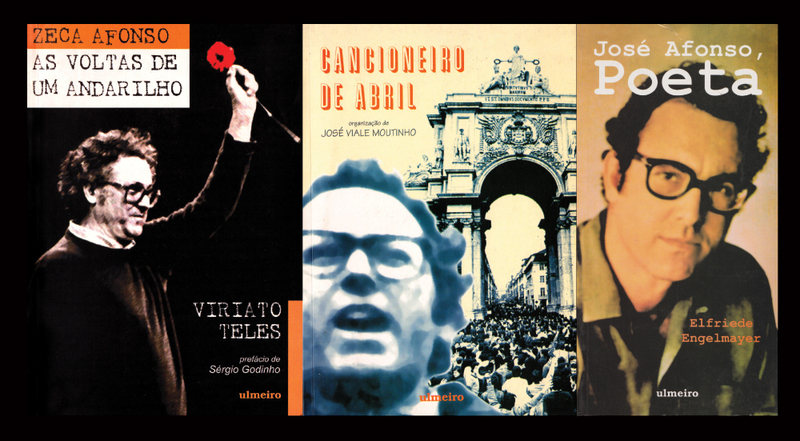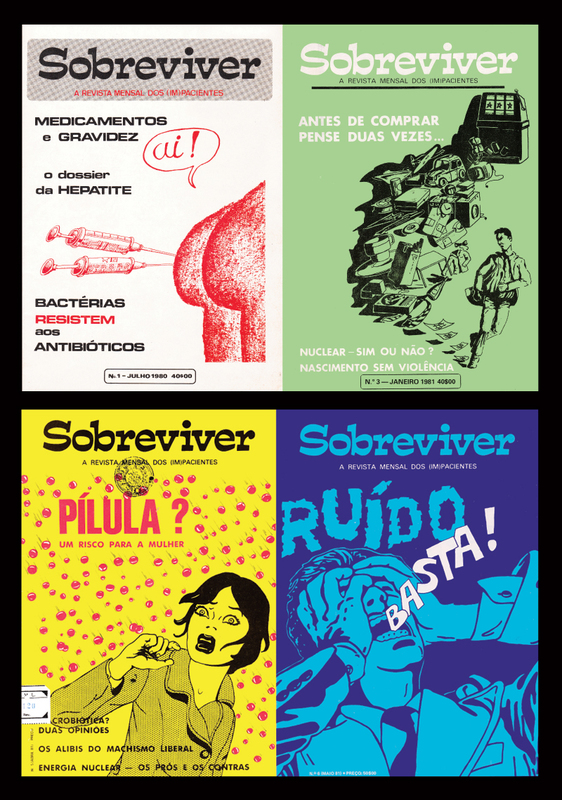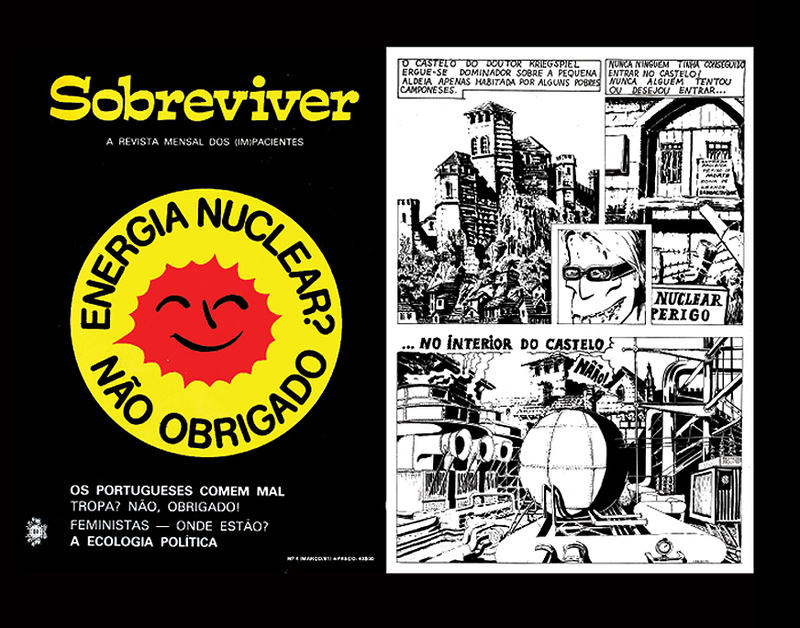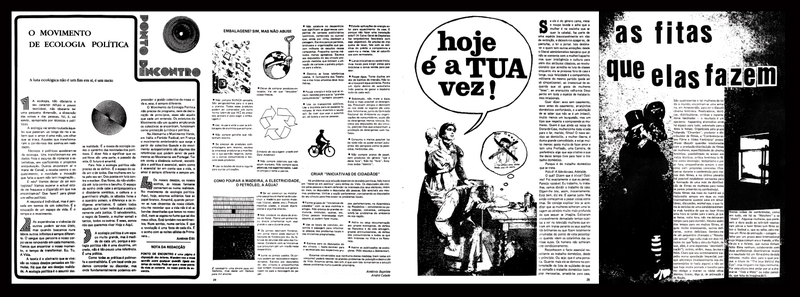5. Anti and post-colonialism and new forms of intervention
The colonial legacy will continue to be questioned by Ulmeiro. When it revealed in 1976 the Massacres na Guerra colonial [Colonial War Massacres], it documented known cases of atrocities committed by the Portuguese army in the Colonial War, one of them first-hand reported by the English priest Adrian Hasting as the “massacre of Wiriamu”, resuming other related production*. Due to this edition, the author and publisher were prosecuted by the military justice, a case never seen before. The process, which went on until 1983, ended in amnesty, leaving the publisher nonconformist, for finding it worthy of a sentence, of accusation or of acquittal.
Colonialism (and post-colonialism) were also documented by books on themes like the counter-insurgency and the role of the independence movement MPLA [People's Movement for the Liberation of Angola] in Angola, as well as by a generous offer of fictional narrative and poetry by Luso-African authors (e.g. Alda Espírito Santo, António Cardoso, David Mestre, Abílio Teixeira Mendes and Ascênsio de Freitas).
Despite the setbacks, Ulmeiro started the 1980s strong, seeking to diversify approaches and support, innovating in illustration and the dissemination of 'avant-garde' experiences and re-investing in new authors.
It opened the decade with a songbook by José Afonso, a familiar protest singer, and proceeded with the publication of several works on the protest song.
It launched the Três continentes [Three Continents] magazine (1980-81), which promoted internationalist cooperation and disseminated news on developing countries, giving priority to the new "Lusophone" space and putting on the public agenda the silenced case of self-determination of the people of Timor-Leste (produced 20,000 copies up to No 12).
In resuming the periodical edition, the Sobreviver [To Survive] (1980-86) followed, which embraced new social themes (ecology, feminism, naturism, antimilitarism, etc.), and the latest happenings of experimental poetry. This magazine signalled a greater expression to graphics and quality illustration (standing out António Pimentel, João Carlos Albernaz and Lídia Martinez), as well as to caricature (e.g., with Vasco).
They were completed by a promotional bulletin, the Ulmeiro Jornal [Journal] (1984-85), which contained thematic texts, author profiles, etc.
In 1985, with “nearly a million books” published, Ulmeiro continued to “swim against the tide” although warning to the “economic suffocation of our bookshops and publishers, new taxes [the VAT]” (Ulmeiro jornal, No. 4, III/1985).
_____________________________________
*V.g., Terror em Tete: relato documental das atrocidades dos portugueses no distrito de Tete, Moçambique (1971-1972) [Terror in Tete: Documental account of the Portuguese atrocities in the district of Tete, Mozambique (1971-1972)], Porto, A Regra do Jogo, 1973, transl. António Sousa Ribeiro; and Wiriamu, Porto, Afrontamento, 1974.
This web publication had the support of CHAM (NOVA FCSH/UAc), through the strategic project sponsored by FCT (UIDB/04666/2020). This work is funded by national funds through the FCT – Fundação para a Ciência e a Tecnologia, I.P., under the Norma Transitória – DL 57/2016/CP1453/CT0062.
See next section: 6. Tributes. Agostinho da Silva, Léo Ferré e Ferlinghetti >>

